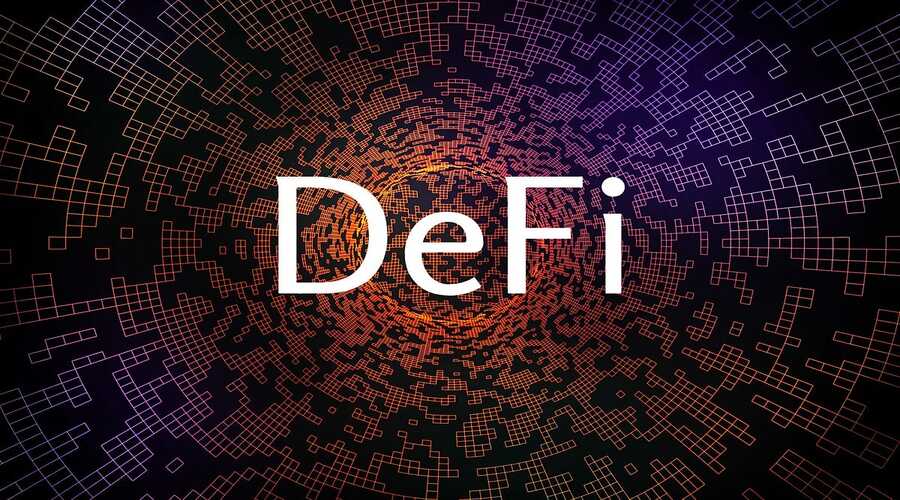
Introduction
The rapid growth of decentralized finance (DeFi) has revolutionized the traditional financial landscape by enabling peer-to-peer transactions without intermediaries. However, this innovation has also raised concerns about privacy and data security. In this article, we will explore the opportunities and challenges associated with privacy-preserving technologies in DeFi.
The Evolution of DeFi
Before delving into privacy-preserving technologies, it’s essential to understand the concept of DeFi. DeFi refers to a decentralized financial ecosystem built on blockchain technology, offering various financial services like lending, borrowing, and trading. It eliminates the need for intermediaries such as banks, enabling individuals to have full control over their funds.
Understanding DeFi and Privacy
Privacy plays a crucial role in DeFi as it ensures that sensitive financial information remains confidential. While blockchain provides transparency, it exposes transaction details to the public. Privacy-preserving technologies aim to address this concern by introducing cryptographic techniques that protect user identities and transaction data.
Importance of Privacy in DeFi
Maintaining privacy in DeFi is vital for several reasons. Firstly, financial transactions often involve sensitive information, such as account balances and transaction histories. Safeguarding this data helps prevent identity theft and unauthorized access. Secondly, privacy ensures that users have control over their personal information, promoting trust and confidence in the decentralized ecosystem.
Privacy-Preserving Technologies

Zero-Knowledge Proofs
Zero-Knowledge Proofs (ZKPs) are cryptographic protocols that enable the verification of a statement without revealing any underlying information. In the context of DeFi, ZKPs can prove the validity of a transaction without exposing the transaction details or the parties involved. This technology provides strong privacy guarantees while maintaining the integrity of the blockchain.
1. What are Zero-Knowledge Proofs?
Zero-Knowledge Proofs allow a prover to convince a verifier about the truth of a statement without revealing any additional information. For example, a ZKP can prove that a transaction is valid without disclosing the sender, recipient, or transaction amount. This technique ensures privacy while enabling transparent auditing of blockchain transactions.
2. Applications of Zero-Knowledge Proofs in DeFi
ZKPs have various applications in DeFi. They can be used for anonymous transactions, ensuring that participants’ identities remain confidential. Additionally, ZKPs can enable selective disclosure, where users can prove specific attributes without revealing their entire transaction history. This feature is beneficial for compliance purposes.
3. Advantages and Limitations of Zero-Knowledge Proofs
The primary advantage of ZKPs is their ability to provide privacy and data confidentiality while maintaining the transparency and immutability of the blockchain. However, implementing ZKPs can introduce computational overhead, potentially affecting transaction speeds. Additionally, ZKPs require careful implementation and auditing to ensure their correctness and security.
Homomorphic Encryption
Homomorphic encryption is a cryptographic technique that allows computations to be performed on encrypted data without decrypting it. In the context of DeFi, homomorphic encryption can enable secure and private computation of financial transactions while preserving the confidentiality of sensitive information.
1. What is Homomorphic Encryption?
Homomorphic encryption enables computations on encrypted data without revealing the data’s underlying values. In DeFi, it can be used to perform calculations on encrypted transaction inputs, ensuring that sensitive information remains private throughout the process. Homomorphic encryption offers a powerful solution for privacy in financial transactions.
2. Use Cases of Homomorphic Encryption in DeFi
Homomorphic encryption can be applied to several use cases in DeFi. It can enable private smart contracts, where computations are performed on encrypted inputs while maintaining data confidentiality. Homomorphic encryption also allows for private data sharing between different DeFi applications, facilitating seamless interoperability while preserving privacy.
3. Benefits and Challenges of Homomorphic Encryption
The main benefit of homomorphic encryption is its ability to perform computations on encrypted data, ensuring privacy and confidentiality. However, homomorphic encryption schemes can introduce computational overhead, potentially impacting the performance of DeFi applications. Additionally, ensuring the secure implementation and management of homomorphic encryption keys is crucial to maintaining data integrity.
Secure Multi-Party Computation
Secure Multi-Party Computation (MPC) is a cryptographic protocol that allows multiple parties to jointly compute a function while keeping their inputs private. In the context of DeFi, MPC can enable secure collaboration and transaction execution without disclosing individual participants’ data.
1. Exploring Secure Multi-Party Computation
Secure Multi-Party Computation allows multiple parties to perform computations on their private inputs while preserving the confidentiality of the inputs themselves. In DeFi, MPC can enable privacy-preserving lending platforms, where borrowers’ credit scores are evaluated without disclosing their personal information to lenders.
2. Practical Applications in DeFi
Secure Multi-Party Computation can be applied to various DeFi scenarios. It can enable privacy-preserving decentralized exchanges, where trades can be executed securely without revealing the trading parties’ identities. Additionally, MPC can facilitate confidential voting mechanisms in decentralized governance systems, ensuring privacy and integrity in decision-making processes.
3. Pros and Cons of Secure Multi-Party Computation
Secure Multi-Party Computation offers robust privacy guarantees in DeFi by allowing multiple parties to collaborate securely. It prevents information leakage while enabling the execution of complex operations. However, implementing MPC can be challenging due to its computational requirements and coordination among participants. Additionally, designing secure MPC protocols requires careful attention to potential vulnerabilities and attack vectors.
Benefits of Privacy-Preserving Technologies
Privacy-preserving technologies in DeFi offer several advantages that contribute to the growth and adoption of decentralized finance.
1. Enhanced Security and Confidentiality
By protecting sensitive financial information, privacy-preserving technologies enhance security and confidentiality in DeFi. Users can transact with confidence, knowing that their personal data is shielded from malicious actors.
2. Improved User Adoption and Trust
Privacy is a crucial factor for users when deciding to engage with DeFi platforms. By incorporating privacy-preserving technologies, DeFi projects can attract a wider user base and build trust within the community.
3. Compliance with Data Protection Regulations
Privacy-preserving technologies help DeFi platforms comply with data protection regulations, such as the European Union’s General Data Protection Regulation (GDPR) and similar frameworks worldwide. Adhering to these regulations strengthens the credibility and legitimacy of DeFi projects.
4. Enhanced User Control and Data Sovereignty
Privacy-preserving technologies empower users with control over their personal data and financial information. By leveraging cryptographic techniques, individuals can choose what information to disclose and to whom, ensuring their data sovereignty in the decentralized ecosystem of DeFi. This control fosters a sense of ownership and autonomy, strengthening user engagement and trust.
5. Protection Against Data Breaches and Exploitation
Privacy-preserving technologies act as a safeguard against data breaches and malicious exploitation. By encrypting sensitive information and implementing secure protocols, these technologies significantly reduce the risks associated with unauthorized access and data leakage. Users can transact and engage in DeFi activities with peace of mind, knowing that their personal and financial data is protected.
6. Preservation of Financial Privacy
Financial privacy is a fundamental aspect of privacy-preserving technologies in DeFi. These technologies ensure that transaction details, account balances, and other sensitive financial information remain confidential. By maintaining privacy, individuals can prevent the disclosure of their financial activities, protecting them from potential risks such as targeted advertising, profiling, or discrimination.
Challenges and Limitations of Privacy-Preserving Technologies
While privacy-preserving technologies offer numerous benefits, they also come with certain challenges and limitations that need to be addressed.
1. Performance and Scalability
Implementing privacy-preserving technologies can introduce computational overhead, impacting transaction speed and scalability. Balancing privacy and performance is a critical challenge that requires innovative solutions and optimizations.
2. Complexity and Development Challenges
Integrating privacy-preserving technologies into existing DeFi infrastructure can be complex and time-consuming. Developers need to acquire the necessary expertise and resources to implement and maintain these technologies effectively.
3. Regulatory and Legal Considerations
Privacy-preserving technologies may raise regulatory and legal concerns, especially in terms of compliance with anti-money laundering (AML) and know-your-customer (KYC) regulations. Striking a balance between privacy and regulatory requirements is essential for the sustainable growth of privacy-focused DeFi projects.
4. User Adoption and Ease of Use
One of the challenges in implementing privacy-preserving technologies is ensuring user adoption and ease of use. While these technologies offer robust privacy protections, their complexity can present barriers for non-technical users. Simplifying the user experience through intuitive interfaces and seamless integration will be crucial for widespread adoption and accessibility.
5. Interoperability and Standardization
Interoperability and standardization are key challenges in the integration of privacy-preserving technologies across different DeFi platforms. Ensuring compatibility and uniformity in privacy protocols and cryptographic standards will enable seamless communication and collaboration between various projects. Collaborative efforts within the DeFi community can drive the development of interoperable solutions that benefit the entire ecosystem.
6. Balancing Privacy and Regulatory Compliance
Privacy-preserving technologies may introduce challenges in achieving regulatory compliance, particularly regarding anti-money laundering (AML) and know-your-customer (KYC) requirements. Striking a balance between privacy and compliance is essential to ensure that privacy-enhancing solutions can operate within legal frameworks. Collaborative dialogue between industry participants and regulators will be crucial to establish guidelines that protect privacy while addressing regulatory concerns.
7. Scalability and Performance Trade-offs
Privacy-preserving technologies can introduce computational overhead, potentially impacting scalability and transaction performance. Balancing the need for privacy with efficient and scalable solutions is an ongoing challenge. Research and innovation in areas such as optimized cryptographic algorithms, off-chain computations, and layer-two solutions can help mitigate these performance limitations.
Future Outlook and Potential Solutions
Despite the challenges, the future of privacy-preserving technologies in DeFi looks promising. Ongoing research and development efforts aim to address performance limitations, simplify integration processes, and ensure compliance with regulatory frameworks. The continuous evolution of cryptographic techniques will contribute to the advancement of privacy in DeFi.
Conclusion
Privacy-preserving technologies play a vital role in addressing privacy concerns in decentralized finance. Zero-Knowledge Proofs, Homomorphic Encryption, and Secure Multi-Party Computation offer promising solutions for maintaining confidentiality while ensuring the transparency and integrity of DeFi transactions. By implementing these technologies, DeFi platforms can enhance security, foster trust, and comply with data protection regulations. As the DeFi ecosystem evolves, privacy will continue to be a crucial aspect, shaping the future of decentralized finance.
I’m a highly experienced and well-respected author in the field of cryptocurrency. I have been writing about Bitcoin, Ethereum, and other digital assets for over 5 years. In addition to my career as an author, I’m also a highly sought-after keynote speaker and consultant on all things crypto and I’m passionate about helping people understand this complex and often misunderstood industry.
